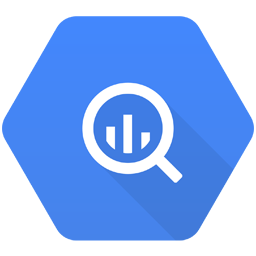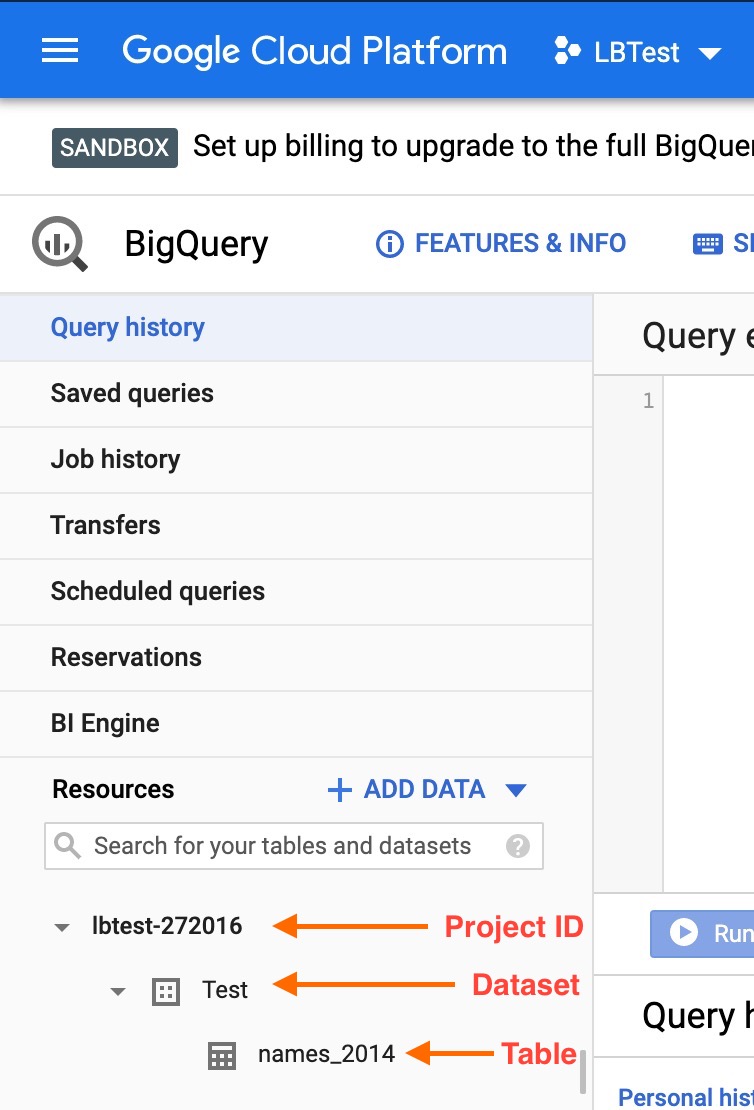Connect Google BigQuery to SMS Notification with LeadsBridge
 »
» 
In this article, you'll learn how to set up the bridge and connect Google BigQuery to SMS Notification using LeadsBridge.
How to set up your bridge step-by-step tutorial
Before you start
Step 1: Bridge's Main information
- Choose a name for your bridge (this will only be visible inside LeadsBridge)
- You may add labels to help you identify your bridge later
- Choose Google BigQuery as the source for your bridge
- Choose SMS Notification as the destination
- Click on the Next button
Step 2: Setup your Google BigQuery source
- Type in the name you'd like to call your integration
- Enter GCP Authentication JSON and Dataset name to connect your Google BigQuery with LeadsBridge
![]()
- To authenticate in Google BigQuery you need to have the OAuth JSON file for your project with the right roles set. If you don't have this file yet, please follow the official guide below to generate it.
Once downloaded, open the file, select the whole content and paste it into the "GCP Authentication JSON" field.( OPEN LINK) - All the needed data can be found on your Google BigQuery dashboard on the left as shown in the picture below.
In the "Dataset name" field you have to specify the name of the database you want to use in Google BigQuery.
In the "Project ID" field you have to specify your Google Cloud Platform project id.
As entity Google BigQuery uses the single record of your database, so select "Record" from the "Manage "Entities as" dropdown.
As segmentation, you will have to select the database table to use, so select "Table" from the "Use Segment as" dropdown.![]()
- Select the segment you'd like to use as the source for your leads
- Click on the Next button
Step 3: Setup your SMS Notification destination
- Type in the integration's name in the dedicated field
- Enter Send SMS from to connect SMS Notification with LeadsBridge
![]()
- "Send SMS from" is the sender's phone number of your SMS notifications.
It may be your phone number or your company phone number, something recognizable when receiving the SMS. DISCLAIMER: if the receiver number is from the US or Canada, the sender's phone number will not be visible in accordance with their national legislation.
- "Send SMS from" is the sender's phone number of your SMS notifications.
- "Agents List (SMS Numbers)" is the field where the phone numbers to notify should be added.
You may enter only your phone number if you're the only receiver, or you may add a list of phone numbers along with names if you'd like to send SMS to different agents. Adding names will be useful to recognize the receiver later, inside the bridge settings.
- "Agents List (SMS Numbers)" is the field where the phone numbers to notify should be added.
- Please remember that all phone numbers should be written with the +CAT format, as per the example below.
![]()
- Click on the Next button
- You'll now be able to select the destination segment to send your leads to
- You may choose to receive an email receipt for each incoming lead.
![]()
- Type the address(es) where you'd like to receive the receipt
- You may also modify the Subject line of the email
- Click on the Next button
Step 4: Fields Mapping
Here you'll be able to map your source information with your destination fields.
You'll see a field name with the destination integration's logo at the top, this indicates the name of the field on SMS Notification.
Underneath there's a box where you may add the information you'd like to send.
- Check each of the SMS Notification fields available
- Match the information you wish to pass along from Google BigQuery
- You may type the information manually and pass them as a static value
- Use the functions to customize information like reformatting dates and times or modifying text, phone numbers and so on
- You may also leave blank the box of a field's information you don't want to send through
Custom Fields
- If you'd like to add more fields, just look at the bottom of the page
- Head over the "Don't find a CRM custom field?" box
- Select the field you'd like to add from the dropdown list
- Click the Add Custom Field button
![]()
- The field will appear above
- Add the desired information, as you did with the other ones
Once accomplished your desired outcome, just click Next and head to the last step.
Step 5: Test
In this final step, you'll be able to send a lead from LeadsBridge to test if the configuration works properly.
- To create a new test lead, fill in the required information when prompted
- Click Test Now
- To test with a real lead, switch the toogle to "Test with existing lead".
- Click Sync Now along the lead you'd like to send
- If you did everything right the button will turn green, meaning your lead was synced successfully and the integration is ready
- Click Finish to save your settings and turn active your bridge
That's all! Congratulations.
You'll be redirected to the bridges section of your account with a green success message at the top right of the page and your bridge will now be active.
Have you got some questions?
You may want to take a look at the common questions on the respective integration's documentation.
- Source: Google BigQuery
- Destination: SMS Notification
If you have any other questions, or need help to configure your bridge from Google BigQuery to SMS Notification with LeadsBridge, do not hesitate to contact our Support!








